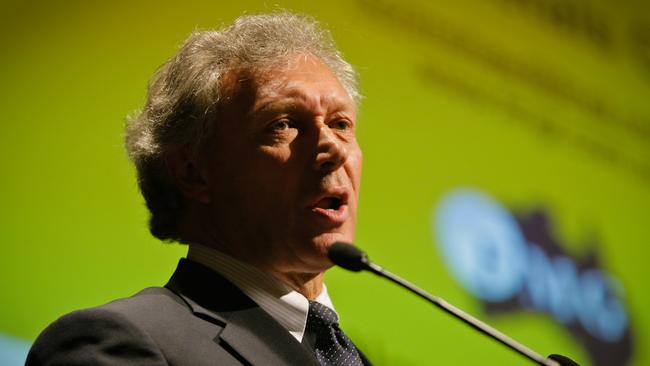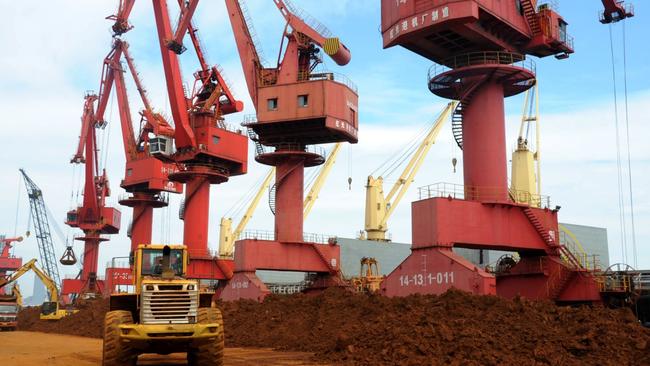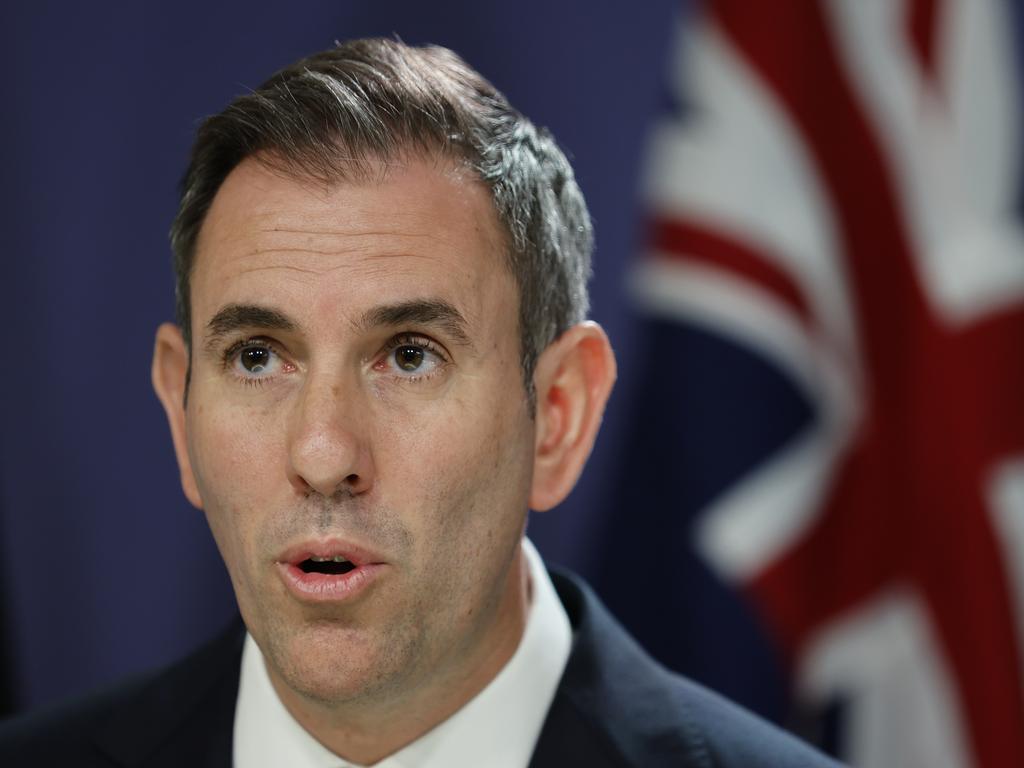China a great partner for rare earths play, says Peak’s Russell Scrimshaw
Russell Scrimshaw helped build Fortescue Metals’ Pilbara iron ore operations. Now he has turned his attention to rare earths in Tanzania.

Russell Scrimshaw helped build Fortescue Metals’ Pilbara iron ore operations and attracted Gina Rinehart’s attention with a multibillion-dollar potash mine deep beneath the Yorkshire moors with Sirius Minerals. Now he has turned his attention to rare earths in Tanzania.
Rare earths stocks have been among the hottest on the market over the past year, fuelled partly by the Covid-driven realisation by the defence establishment in the US and its allies that their supply chains are too dependent on China for comfort.
But, where many listed rare earths hopefuls have been at pains to highlight China’s absence from their register, or their list of customers, Peak Rare Earths has moved in the opposite direction.
A year ago the move by China’s Shenghe Resources to acquire almost 20 per cent of the company at a premium prompted Peak to appoint Macquarie Capital as its defence adviser, amid concerns the ASX-listed junior could become another target of China’s efforts to snap up global resources projects.
At the time Peak, which argues it has the best undeveloped rare earth deposit in the world, planned to build a rare earth refinery in the UK, and was also highlighting its distance from China’s rare earths industry. That has now all changed.
The UK refinery plan is gone and, rather than being seen as a potential predator, after signing a standstill agreement and a potential offtake deal Shenghe is now shaping as the sole buyer of concentrate from Peak’s Ngualla project in Tanzania, and as a valuable partner in helping the company get the best out of its deposit.
On top of that, Peak has finally landed key mining licences from the Tanzanian government and, after closing a $27.5m capital raising on Monday, hopes to make a final investment decision on the $US321m ($500m) mine development later this year.
Mr Scrimshaw, who joined Peak in August last year as its executive chairman, told The Australian the decision to park the company’s UK plans was a key factor in winning a special mining licence after 10 years of trying.
“It became apparent that wasn’t in the best interest of the Tanzanian government, and one of the reasons they were going for was that they felt they weren’t getting enough value out of this product because the better part of 60 per cent of the value of the end product was being shipped offshore to the UK,” he said.

Add to that the complexity and cost of building a mine and refinery at the same time, and it was clear the market did not believe the company could deliver, he said.
“It became clear that the Tanzanian government wanted us to engage to see if we could do more in the country,” Mr Scrimshaw said. “So we agreed with them that we would put on hold a plan to build a refinery in the UK in favour of working with them to look at the best strategy to go further downstream from just a concentrate.”
With Shenghe also indicating an interest in building value-adding plants outside of China, that made the Chinese company look more Peak’s best option for an ally rather than a threat.
Shenghe, worth about $5.3bn on the Shanghai market, is one of the most active of China’s privately owned rare earths companies. It is best known for helping bankroll the return to production of the only operating rare earths mine in the US, Mountain Pass. It still holds a stake of about 8 per cent in MP Materials and is the sole buyer of offtake from the mine.
“China has got the intellectual property around this space and the world of rare earths knows that. We have a company that looks very much like us in the US, called MP Materials and their rare earth material is very, very similar to ours,” Mr Scrimshaw said.
“In talking to Mountain Pass, Shenghe has clearly helped them significantly in improving their grades and improving their recoveries. What they’re doing now is they’re going further downstream themselves and building their own refinery.”
Mr Scrimshaw said Peak now planned to deliver concentrate to Shenghe – potentially replacing that produced at MP Materials’ Mountain Pass mine, which comes from the same bastnaesite geological hosting as Peak’s deposit – and then consider ways to turn Ngualla into a regional processing hub for other rare earth projects in southern and eastern Africa.
The former Fortescue executive led the iron ore miner’s negotiations with Hunan Valin ahead of the Chinese regional steelmaker’s $1.2bn acquisition of 16.5 per cent stake in the Pilbara iron ore producer in 2009, along with offtake rights.
While the Chinese steelmaker has slowly sold down its holding in Fortescue it still retains a stake of about 10 per cent in the Pilbara miner, and Mr Scrimshaw said the deal proves how well a long-term relationship can work between Australian miners and Chinese buyers.
“I‘m pretty convinced that this relationship is best for us at this time. It’s Shenghe who’s got the intellectual property, they’ve got the skills to know how to process our material. And I’m really encouraged by them saying they want to look outside of China and internationalise their business,” he said.
“I‘m not as concerned as some people might be about dealing with China. At the moment it’s the right thing to get us going.”
Peak closed a $27.5m raising on Monday at 50c a share. Mr Scrimshaw will acquire 300,000 shares in the raising with new director Ian Chambers – the former boss of Morgan Stanley Australia – subscribing for 315,000 shares.
Peak shares closed down 8c at 54.5c on Monday.



To join the conversation, please log in. Don't have an account? Register
Join the conversation, you are commenting as Logout